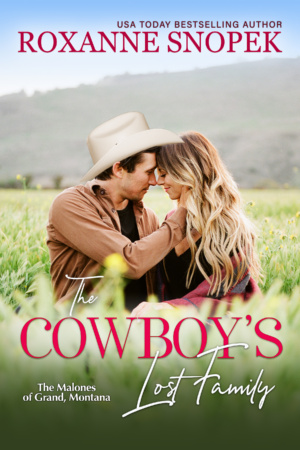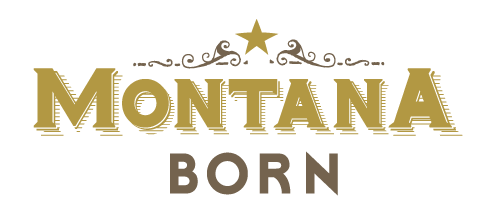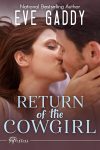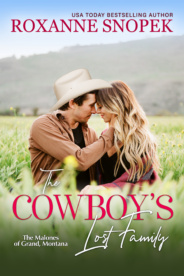Start reading this book:

Share This Excerpt
Chapter One
Billings, Montana
Present
The only thing worse for a doctor than being a patient was being the relative of a patient.
Or, thought Brade Oliver, discovering that he wasn’t even that.
He looked at the man lying against the white sheets. Charles Oliver looked smaller and thinner, not the substantial man who ruled an empire with an iron fist. Not the man who’d taught him to ride a bike, yelled at him to “Get up, get back on!” when he fell off. Not the man who’d folded his arms across a barrel chest and demanded that his only son give up pipe dreams of rodeo greatness and attend medical school. That Brade uphold the family name in every possible way, at every possible time. That Brade be a good, dutiful son.
Brade had done it all. But it turns out that good and dutiful didn’t work together.
As for son, well . . . there was the real joke.
“I’d have given you a kidney,” he told his father now. He’d taken leave from his Seattle hospital to be at this father’s bedside and being in the medical environment without privileges was more difficult than he expected.
The man stirred, his thin hand scrabbling lightly against the blanket. Rheumy eyes opened, but there was no light within them.
“I thought you were being selfless,” Brade continued, “not wanting me to take the risk.”
The blood test that ruled Brade out as a potential donor had also ruled him out as being the biological son of Charles Oliver.
If only he’d known sooner, maybe he’d have been able to get some answers. But Charles’s kidneys had been failing for years before Brade found out and now, not only was it too late for a transplant, but it appeared to be too late for answers. Brade’s mother had died when he was in college—colon cancer—and she’d never given him the slightest clue.
As a physician—yes, he’d fulfilled the parental demands—he felt like an idiot not to have figured it out sooner. His parents had been older when they’d had him, forty-two for Deborah and forty-eight for Charles. Brade didn’t resemble them, but what child ever thinks they do? With no siblings or cousins to compare himself to, it hadn’t entered his mind. Both only children themselves, his parents rarely talked about their lives before him, or the families they’d come from. Any health issues were brushed aside, not fit conversation for a child, or a teen, or a young man, or even a medical student. They never joined him at blood drives.
Brade had been their “miracle baby” to their friends and acquaintances, someone to bring out at dinner parties, like a prize quarter horse, and then put back in the stall because, well, what else do you do with a horse at the dinner table?
He’d never fit in and now he knew why.
“Who am I, Dad?” he whispered. His throat tightened. He clenched his fists, closed his eyes, and breathed until the sensation passed. It was natural to grieve the loss of a parent. But he was also losing his last link to himself, his past, his roots. He wasn’t an Oliver. His blood carried the genetic material of two unknown people. Who were they? Were they still out there, somewhere? Were there others who looked and sounded like him, who were maybe wondering about him the way he was wondering about them?
Charles Oliver grimaced, muttering something unintelligible behind his hospital mask.
Brade pushed away his own feelings. He needed to be a doctor now, not a son.
“Drink.” Brade held the water glass up and gestured for his father to move his mask enough for the straw.
Charles batted it away and mumbled something again, frowning as if in pain.
“What is it, Dad?”
Dialysis had worked for a while, removing the toxins the failing kidneys couldn’t handle, but at some point, kidney patients lost lucidity, couldn’t remember things, stopped being able to converse. The end was near.
“Well . . . din . . .” Charles said, blinking blearily.
“What? Welding? Wedding? Try again, Dad.”
But Charles shook his head. “No . . . ’s . . . caught . . . run . . .”
Brade swallowed. “Rest.”
He hoped, for Charles’s sake, that it wouldn’t be much longer. For his own sake, too, to be honest. The waiting was awful. But knowing the processes, the treatments, the utter futility of where they were at right now, made him want to climb out of his skin. Or put his hand through the wall.
He checked his phone to see if there were any messages. That morning, he’d texted Jillian, the pharmaceutical rep he dated occasionally. She was somewhere in Europe this month. Germany, he thought. It would be nice to have a friendly face at his side.
But there was nothing.
Her schedule was unpredictable, and the distance meant that their communication was only via text or email, hours apart. When he’d first informed her of his father’s illness, she’d offered, after a few exchanges, to fly home to support him, but Brade read reluctance between the lines. When he declined, she told him she’d be thinking of him.
“Weldings . . . caught . . .” Charles coughed, a thick, rattling sound. “Sweetheart . . .”
“You’ll see Mom soon.” It wasn’t an endearment he recalled his parents using, but perhaps the final electrical currents were dredging up memories of private affection. They’d been a world unto themselves. What had they even needed a child for?
At least, now he knew why he’d never gotten the brother or sister he’d begged them for.
Brade adjusted the IV flow, looked at the piggyback bag that dripped pain relief into the carefully balanced solution. It was getting low. He’d ask the nurse to bring in a new one soon. End-stage was all about comfort.
Another rattling cough came from the bed, and thin fingers gripped his wrist.
He started. “Dad?”
“You . . . gran . . .” Charles said, catching his breath. His eyes were fierce. “Gran!”
Grand? Brade felt heat at the back of his eye sockets. Other people used words like great or super or fantastic, but when Charles Oliver was pleased with something, it was grand.
His throat tightened. “You’re pretty grand, yourself.”
“No!” Charles gave Brade’s wrist a shake. He blinked and grimaced, as if frustrated, then coughed again.
“Dad, it’s okay.” Brade leaned out the doorway. “Nurse?”
A young, brown-skinned man came in, carrying the necessary meds. “We’ve got you covered, Mr. Oliver,” he said.
“It’s Dr. Oliver,” Brade corrected. “The man is dying. Show some respect.”
“Apologies, Dr. Oliver.” The nurse didn’t even look at Brade but focused all his attention on his patient, his movements brisk, efficient, and gentle at the same time. It obviously wasn’t his first time dealing with a terminally ill patient, or a grieving family member.
Brade knew the nurse deserved better, but there was no one else to take his frustration out on, and the powerlessness was blinding.
“He needs oxygen,” Brade said. “Get me a nasal canula. I’ll set it up myself.”
“Mr. Oliver—” the nurse began. His tag read ASHRAF.
“Dr. Oliver.” He gritted his teeth. “My father and I are both physicians. Which makes this all the more difficult.”
“More difficult?” Ashraf asked mildly. “Palliative care is easy for no one, Doctor.”
The last thing Brade needed was a nurse telling him how to feel. “He’s confused, agitated. He needs more sedation.”
Ashraf looked at his watch. “Not for another hour. Here. This pillow will make your father more comfortable.”
“A pillow?” Brade wondered if smoke was coming out of his nostrils.
“Yes.” Ashraf met his gaze. “This is the process, Doctor. He has what he needs most right now.”
“What he needs most are new kidneys!”
“A father needs his son. You are here. You are with him. You are exactly what he needs.”
The nurse slipped out of the room. A sound came from the bed again.
“Dad?” Brade said.
“You,” the old man whispered. He clawed at his mask.
“Dad,” he cautioned, reaching out automatically. Then he stopped. What was the point of protection now? Slowly, he moved the elastic off his own ears and lowered the material. He and his father were face-to-face, no barriers. He felt his eyes fill and a sudden memory washed over him. Seven years old. Left at a new school in the middle of the year, knowing no one. “Wait. Don’t go.”
The fingers tightened on his wrist again.
“Your . . . will . . . weldings . . . caught,” he whispered. He said more, his words garbled and confused. “Sweetheart . . .” Charles Oliver took a deep breath, as if determined to make his last word count. “Grand . . .”
End of Excerpt










